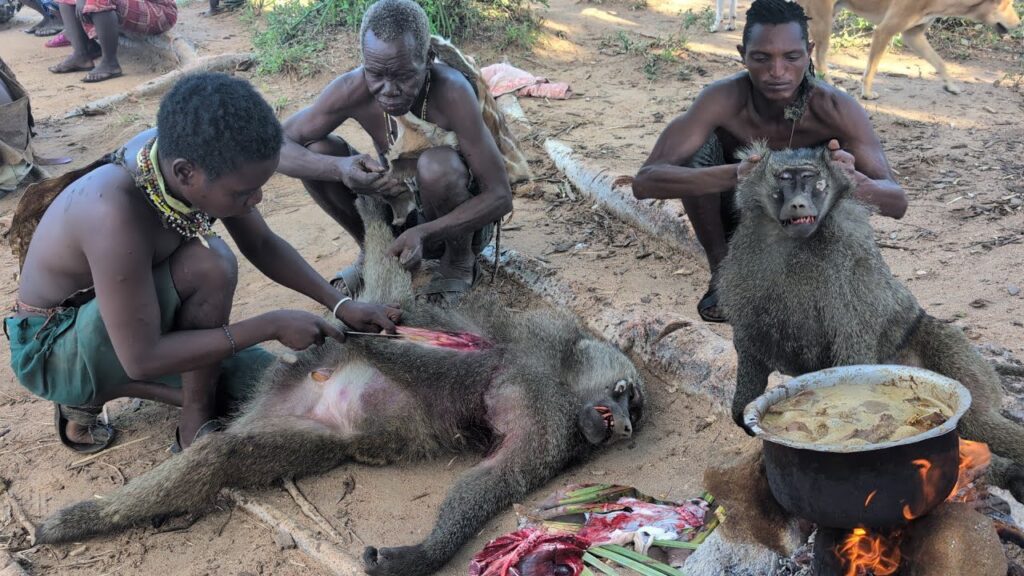
Deep in the arid regions of northern Tanzania lives one of the last true hunter-gatherer communities on Earth—the Hadzabe tribe. With a lifestyle virtually untouched by modernity, the Hadzabe people have preserved their ancient traditions, including how they hunt, gather, and prepare their meals. Watching them in action is not only fascinating but also a powerful reminder of how deeply human survival is connected to the natural world.
In one incredible scene, members of the tribe rise early, equipped with hand-carved bows, poisoned arrows, and a keen sense of the land. Unlike modern hunters, the Hadzabe rely on instincts passed down through generations. They track animal footprints, follow bird calls, and understand subtle shifts in the wind. When they locate their prey—be it a small antelope, a guinea fowl, or even a monkey—they move swiftly and silently.
Once the animal is caught, the tribe wastes no time. The preparation is immediate and raw, both literally and culturally. Some parts of the catch, such as organ meat or bone marrow, are consumed on the spot—raw and fresh. This isn’t shocking to them. It’s nutrition at its purest. Other parts are roasted over a simple fire made from dry twigs, using no spices or oils, just nature’s original way of cooking.
Watching them eat together is a communal affair. The kill is shared evenly, and there’s no hierarchy in who eats first. Young and old gather around the fire, laughing, talking, and honoring the animal that gave them sustenance. The connection between food, nature, and community is deeply spiritual and respectful.
Their diet isn’t just meat. The Hadzabe also gather wild honey, baobab fruit, roots, and berries. Everything they consume is either hunted or foraged, all done with sustainability in mind. They take only what they need and never overexploit the land.
For viewers accustomed to supermarket aisles and packaged meals, witnessing the Hadzabe prepare their food is both eye-opening and humbling. It’s a lesson in resilience, adaptation, and gratitude. These people live in harmony with nature, thriving on its gifts without taking more than what is necessary.
This incredible tradition shows that survival doesn’t always require modern tools—just knowledge, unity, and respect for the earth.


